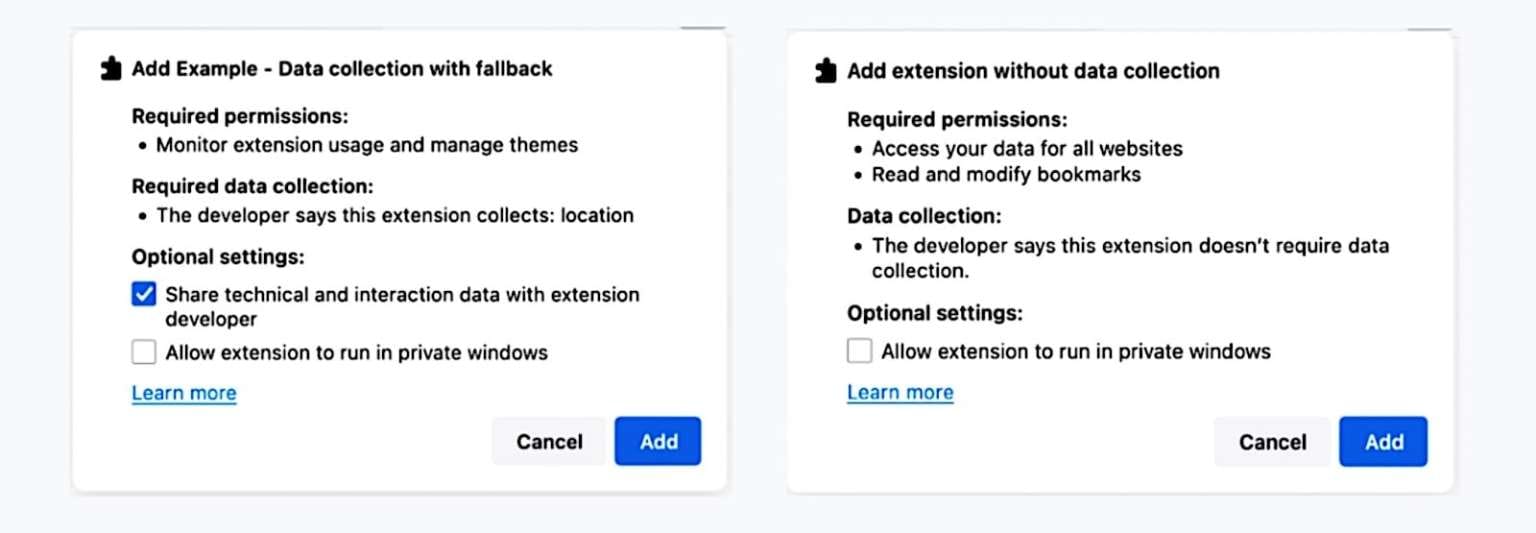Firefox Mandates Data Collection Disclosures for All Extensions

Mozilla is implementing new transparency requirements that will force Firefox extension developers to explicitly disclose what user data they collect or share with third parties. The policy takes effect November 3, 2025, for new extensions and becomes mandatory for all developers by mid-2026.
How the New System Works
Under the new rules, developers must add a browser_specific_settings.gecko.data_collection_permissions parameter to each extension's manifest.json file. This parameter must list all categories of information collected, including names, email addresses, search queries, browsing history, and browser activity data. Even extensions that collect no user data must explicitly declare this in the manifest.
Firefox will automatically parse this information from the manifest and display it to users during installation, alongside traditional permission requests. The same disclosure will appear on the extension's listing page at addons.mozilla.org and in the "Permissions and Data" section of Firefox's about:addons management interface.
Users can then choose to accept or decline data collection—mirroring the existing permission model for browser features like camera access or location services.

Enforcement and Rollout
The requirements currently apply only to newly submitted extensions. Developers of existing add-ons aren't obligated to comply until they update their products to the new framework. Extensions with missing or inaccurate data collection disclosures will be rejected during the moderation process, with developers receiving detailed error messages explaining the deficiency.
Mozilla frames the policy as part of its broader commitment to transparency and user privacy. The initiative shifts Firefox toward a model where users receive upfront information about an extension's data practices before installation, enabling informed consent rather than post-installation discoveries.
The move addresses a longstanding blind spot in browser extension ecosystems, where privacy policies—if they exist—are often buried in documentation users never read. By surfacing data collection practices at the point of installation, Mozilla aims to give users meaningful control over their privacy within the Firefox ecosystem.


